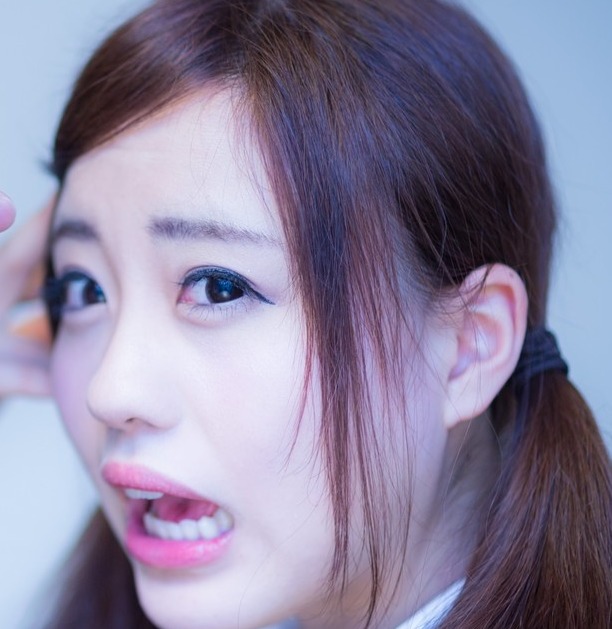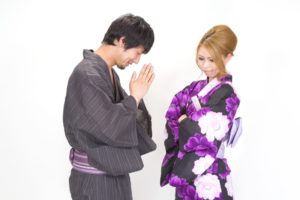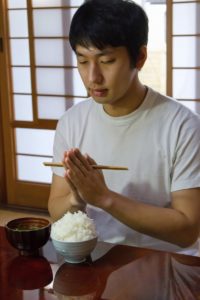No More Mistakes About Using Both 怖い and 恐い
There’s afraid, scared, frightened and terrified in English can be translated to 怖い and 恐い in Japanese. However, what is the difference between them? Both you can read こわい. I’d say you have been using the word of こわい so far. However, the way to read こわい is the actually same thing, so it may have made Japanese learners confused to use and write. Today, let me introduce how they are different from each other and the way to use them clearly.
怖い (kowai) / 恐い (kowai)
Afraid / Scared / Frightened / Terrified
When searching the meaning of 怖い and 恐い, they mean the same thing. However, there’s two different ways to use it. First, 怖い is “kanji in common use”, unlike 恐い. Second, 怖い can be used as subjective and 恐い can be used as the objective. This is how natives use 怖い or 恐い depending on the situation. Let’s look at the detail.
Firstly, “kanji in common use” which is called 常用漢字 that Japanese government designates a lot of kanji can be often used on a daily basis. So that’s why, when reading the Japanese newspaper, 怖い is often used than 恐い. And if you write official letters to someone, then using 怖い would be better than using 恐い.
Secondly, subjective or objective which means is that when someone feels he/she is afraid / scared / frightened / terrified about something, using 怖い is better to choose. However, when someone thinks everybody would be afraid / scared / frightened / terrified about something, using 恐い is better to choose.
For instance, when you got scolded by a school teacher, you would use 先生は怖い, however, when the school teacher scolded someone and you have heard about it, you could use 先生は恐い. People have experienced something such as an earthquake, they could use 地震は怖い, but People don’t have experienced something such as the earthquake and they have just heard it from someone or saw it on the show-biz, they could use 地震は恐い.
Could you figure the difference between 怖い話 and 恐い話? When using 怖い話, people have experienced it, and when using 恐い話, people saw about it on the show-biz or hear from someone.
POINT
怖い : kanji in common use : subjective : experience
恐い : except for kanji in common use : objective
\ Learn Japanese with a personal native teacher!/
Sample
昨日宿題忘れたから先生に怒られたよ。怖かったー! (I got scolded by homeroom teacher yesterday because I forgot my homework. I was scared.) (因为我昨天忘记写作业,所以老师生气了。超可怕的啦!) (어제 숙제를 깜빡해서 선생님한테 혼났어. 무서웠어!) (Hôm trước thầy đã cáu với tôi vì tôi quên bài tập về nhà đấy. Sợ quá!) (kinō shukudai wasureta kara sensei ni okorareta yo. kowakatta-!)


昨日、先生が宿題忘れた生徒を怒ってるのを見たよ。あの先生って恐いよね。 (I saw a teacher scolding a student who forgot his homework yesterday. I think that teacher is scary.) (昨天看到老师对忘记作业的学生发飙。那个老师真可怕啊。) (어제 선생님이 숙제 안 해온 학생을 혼내는 걸 봤어. 그 선생님 무섭지.) (Hôm trước tôi đã nhìn thấy thầy cáu với một học sinh quên bài tập về nhà đấy. thầy giáo ấy đáng sợ nhờ!) (kinō, sensei ga shukudai wasureta seito wo okotte ru no wo mita yo. ano sensei tte kowai yo ne.)


3年前に地震を体験しました。本当に怖かったです。 (I experienced the earthquake 3 years ago. I was frightened.) (三年前我经历过地震。真的非常恐怖。) (3년 전에 지진을 경험했어요. 정말 무서웠어요.) (Tôi đã trải qua trận động đất ba năm trước, tôi đã thực sự sợ hãi.) (san nen mae ni jishin wo taiken shimashita. hontō ni kowakatta desu.)


ニュースで地震の映像を見ました。本当に恐かったです。 (I saw the news about the earthquake. That frightened me.) (我在新闻中看到了地震的画面。真的很恐怖。) (뉴스에서 지진 영상을 봤어요. 엄청 무서웠어요.) (Tôi đã xem những hình ảnh về động đất trên bản tin. Tôi thực sự sợ hãi.) (nyūsu de jishin no eizō wo mima shita. hontō ni kowakatta desu.)


これから僕が体験した怖ーい話をするね! (From now on, I’m gonna tell you about so scary story.) (从现在开始我要告诉你我经历的可怕故事!) (지금부터 내가 겪은 무서운 얘기를 해줄게!) (Bây giờ tôi sẽ kể cho bạn nghe những câu chuyện đáng sợ mà tôi đã trải qua nhé.) (korekara boku ga taiken shita kowa-i hanashi wo suru ne!)


これから田中くんから聞いた恐ーい話をするね! (From now on, I’m gonna tell you about so scary story which Tanaka told me.) (从现在开始我要跟你说我从田中那听到的可怕的事!) (지금부터 다나카 군에게 들은 무서운 얘기를 해줄게!) (Bây giờ tôi sẽ kể cho bạn nghe một câu chuyện đáng sợ khủng khiếp mà tôi đã nghe từ anh Tanaka nhé.) (korekara tanaka kun kara kiita kowa-i hanashi wo suru ne!)


怖いよー!/ 怖っ!/ 怖ーい! / 怖いなー。/ 怖いー。 (I’m scared.) (好可怕哦——超可怕!吓死人了!太恐怖啊——好恐怖。) (무서워! 무섭다고! 무서워! 무섭다. 무서워.) (Sợ quá à Sợ! Sợ! Sợ lắm ý ! Sợ!) (kowai yo-! / kowa! / kowa-i! / kowai na-. / kowai-.)
\ Learn more! /









Comments